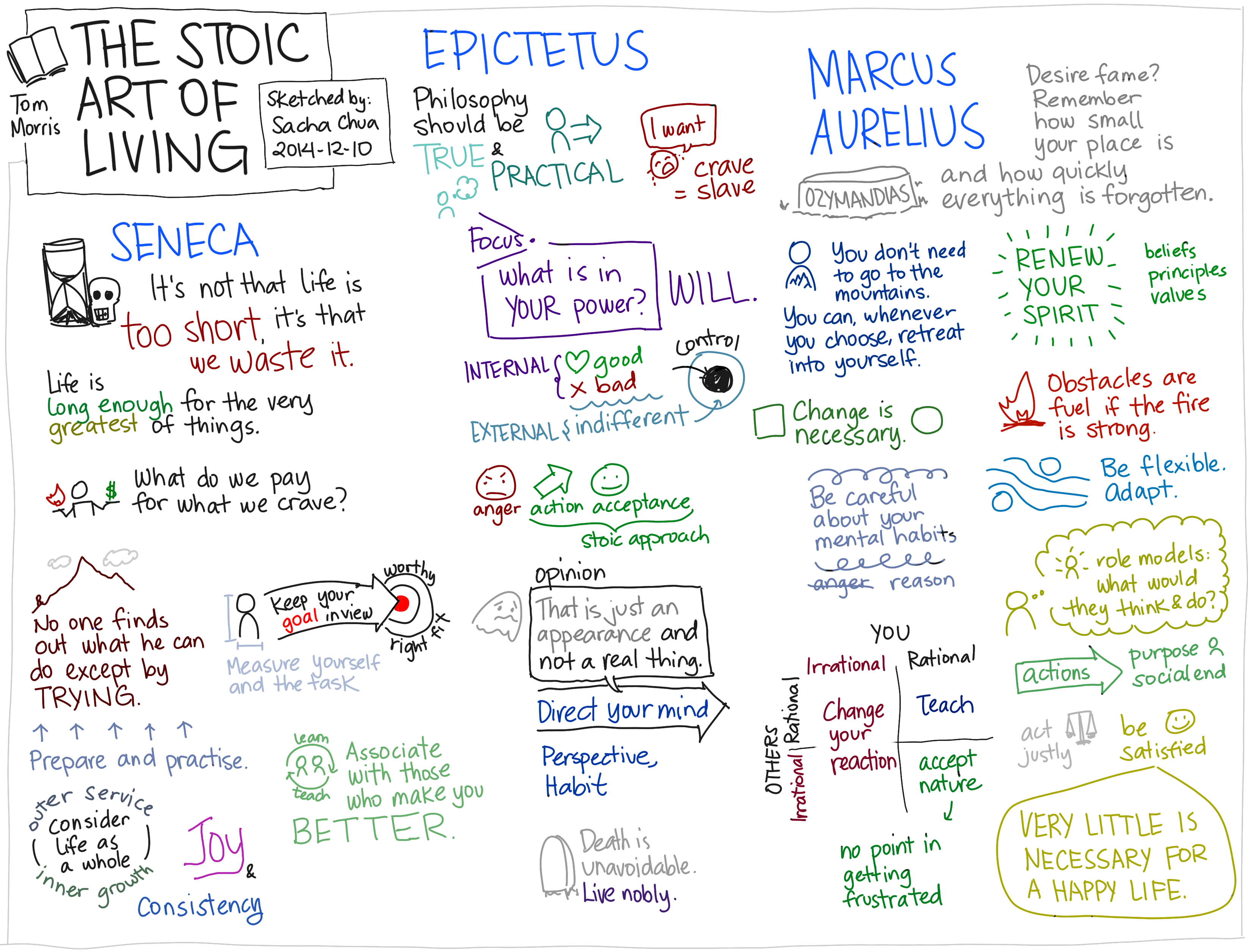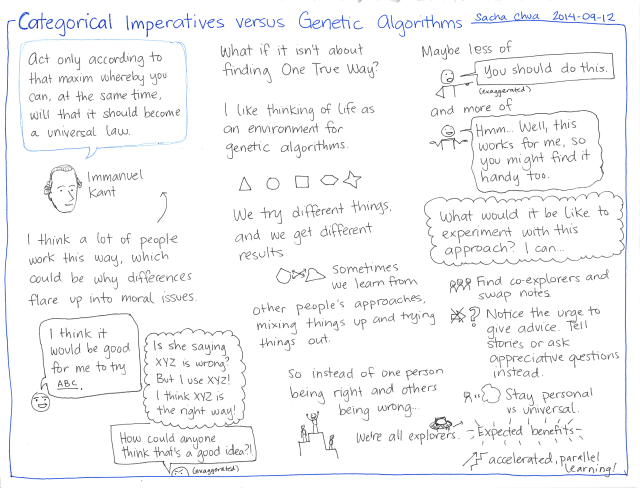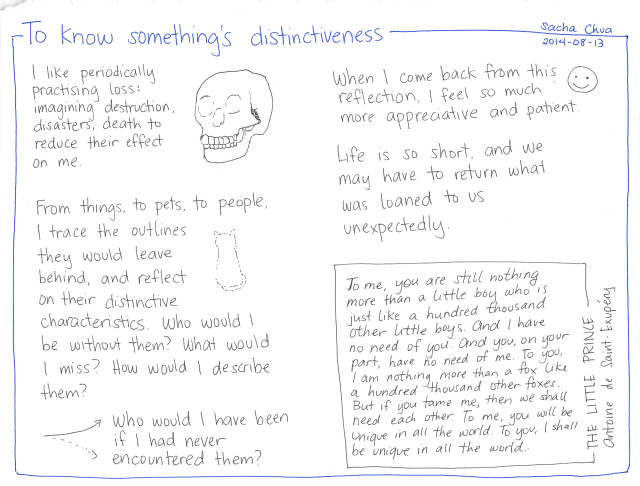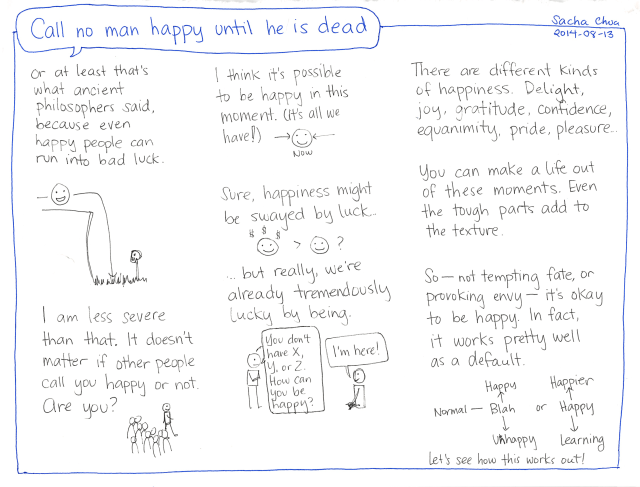A reflection on otium
Posted: - Modified: | philosophyStill working on working on my own things.
Otio qui nescit uti . . .
plus negoti habet quam cum est negotium in negotio ;
nam cui quod agat institutumst non ullo negotio
id agit, id studet, ibi mentem atque animum delectat suum:
otioso in otio animus nescit quid velit
Hoc idem est ; em neque domi nunc nos nee militiae sumus;
imus hue, hinc illuc; cum illuc ventum est, ire illinc Iubet.
Incerte errat animus, praeterpropter vitam vivitur.
He who does not know how to use leisure . . .
has more of work than when there is work in work.
For to whom a task has been set, he does the work,
desires it, and delights his own mind and intellect:
in leisure, a mind does not know what it wants.
The same is true (of us); we are neither at home or in the battlefield;
we go here and there, and wherever there is a movement, we are there too.
The mind wanders unsure, except in that life is lived.
Ennius’ Iphigenia (~190BC), quoted in Wikipedia
I feel embarrassed to write about this because it’s such a privileged situation. “Oh, gee, whatever shall you do with your spare time? Gosh, I wish I had that problem! Now stop rubbing it in.” And I can imagine all sorts of quick answers I’d be happy with. I’m at least 80% happy with the solution of using my time to learn, code, draw, write, and share.
But there’s a question somewhere in here, and I want to explore it from time to time. I’m not sure what the question is, but maybe I can think around it so that I can sneak up on it.
What would answering this question look like? I don’t think I’ll get to the point where I’ll say to myself: “Aha, I have Answered This Question, and now I know how I should spend my leisure time for the rest of my life.” Hmm. No, I think I’m mostly looking for the feeling that I’m not making a huge mistake, that I’m not wasting my life, that there are people I look up to who have made similar choices.
Huh. That sounds promising. I think I feel more settled if I had more-developed mental counselors who’ve explored this type of lifestyle – something different from ambition and careerism, but also something different from private life or dissipation. The Wikipedia article on otium suggests people to learn more about, such as Seneca, Petrarch, Theophrastus, Aristotle, and Epicurus.
There’s also something interesting there about the idea of activities that justify leisure, lifting it up above idleness. Cognitio and contemplatio, studio and quies… (ref) And maybe both “contemplation and practical action” (ibid.).
So maybe there are three questions here:
- Who are the role models and companions who can guide me as I try to do this better?
- How can I improve how I use my leisure time?
- How should I feel about how I use my leisure time? Satisfaction reduces energy lost to frustration and opens up a relaxed way of thinking, but can also lead to wasted opportunities.
This reminds me of my post on Thinking about leisure activities: noble, advantageous, pleasant. Activities have differently-valued results. Playing video games sometimes leads to shared jokes and personal delight at the designers’ cleverness, but pales in comparison to other things I can do, so my LEGO Marvel Super Heroes languishes at 57.8%. Cooking results in temporary personal and familial value, but doesn’t benefit the wider world. Writing and Emacs geekery benefit a tiny niche, although sometimes I suspect that most of the benefit is personal rather than public.
Hence the temptation of consulting: clear benefit to myself (increased skills), my household (increased safety), and the team (increased capabilities), and possible benefit for tens of thousands of people.
And it’s also tempting to procrastinate the questions, focusing on easy answers like consulting and writing and geeking out about Emacs. They might be the sort of questions that resolve themselves, as my responsibilities and interests evolve. They might be the sort of questions that are easier to answer with more experience and skill. I’ve been reading about how the reasonable economic principle of ignoring sunk costs and focusing on marginal costs can bias established companies towards sticking with what they know, and it occurs to me that people are quite similar in this regard; the smooth groove of habit or expertise can be a rut that’s hard to get out of.
Hmm. I notice that some of the oddness comes from looking at leisure as work, as something to improve – to do more efficiently or more effectively. (This reminds me of this Yiddish saying: “Sleep faster, we need the pillows.”) If I want to, I can accept this attitude, managing myself with projects and timelines. But I’m curious about leisure as leisure, the thoughts you can think when you are unhurried. At the same time, there is this fear of being a slacker – the indolence of a couch potato or the isolation of an ivory tower.
So, something about people who set aside space for leisure, didn’t treat it like work, and yet accomplished useful things. This forces me to confront my definition of “useful.” What do I mean? An effect that lives beyond them. One could argue that spending time with friends or family can have diffuse results that outlive you, but I think I want something else in addition to that. Maybe to add to what we know.
And here something philosophical in me points out: “Why desire to be remembered? When you are dust, it won’t matter. Millions of people have lived and died without their names being remembered past a few generations.”
To which I say, “Okay, maybe it doesn’t matter that I am remembered, but it would be nice to know that something useful has been added.”
Then this inner philosopher says, “Were you waiting for a certificate? Here it is. You have done something that at least one other person has found useful. Whatever you leave undone, someone else will do, or it wasn’t needed anyway. How big of an impact do you need for your ego to be satisfied?”
And then I say, “Now that you put it that way, it doesn’t make that much sense. It’s one more thing to let go.” Slowly making progress. (The doubt pipes up again: “But should I let go? What if letting go is the wasteful thing to do here?” Tenacious, that thing.)
As for role models – I am not a special snowflake. There are countless people who live or have lived aspects of the life I’m figuring out. It doesn’t even have to be a majority-leisure life; I can learn from people who meditatively use the pockets of time they have each day. I can learn through habit and observation: instead of trying to think my way to the answers up front, I can try a little bit of this and a little bit of that, and I can reflect on the results.
It’s difficult to relax, but I’m learning.




